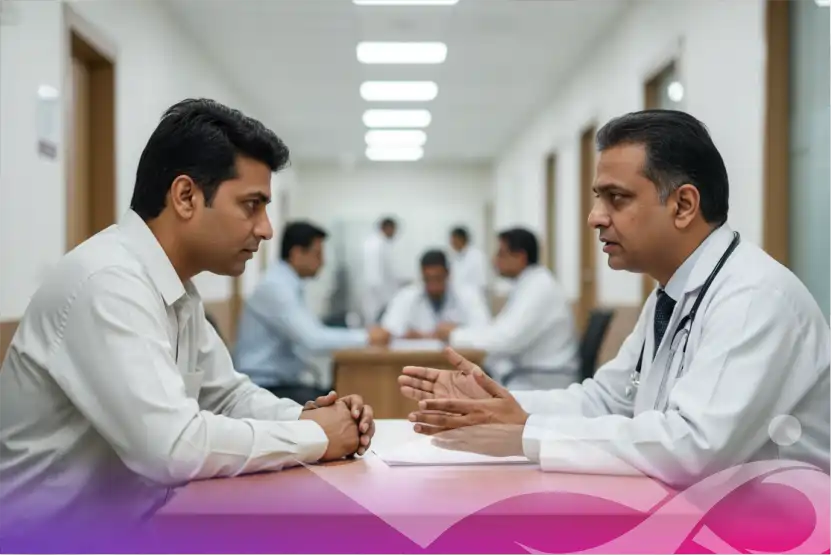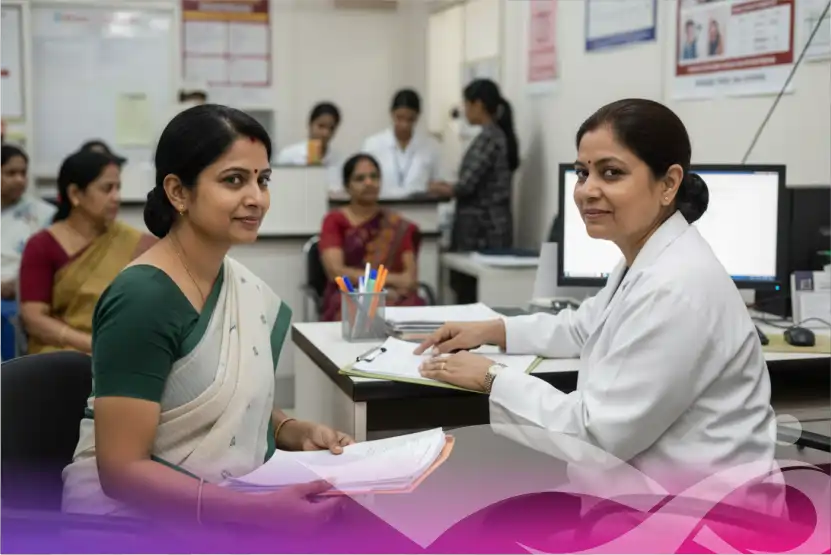Many people don't know about urethral cancer because it is so rare. This type of cancer affects the tube that carries urine out of the body. The International Oncology Cancer Institute (IOCI) says that knowing about even rare cancers is important for being aware of all types of health issues. This information helps doctors find and treat these rare diseases, and it also gives people more power.
What is urethral cancer, and how rare is it?
Urethral cancer is a very rare type of cancer, that's for sure. The rates of incidence are usually very low, often less than 1% of all urological cancers, which shows how rare it is. It grows in the cells that line the urethra. While the exact numbers vary by area, it is thought to affect a small number of people each year. Men are a little more likely than women to have it, partly because their urethras are longer. There are many types of cells that line the urethra, and each one gives rise to a different histological subtype. For example, adenocarcinoma, squamous cell carcinoma, and urothelial carcinoma are all types of cancer.
Because it is so rare, many doctors may not be able to diagnose it easily because they don't see many cases in their careers. Because it is so rare, research is still going on to find out what causes it, how to treat it, and the best ways to diagnose it. This research often uses data that has been collected from many institutions around the world. Smoking, having had bladder cancer before, and having ongoing irritation or inflammation of the urethra (maybe from infections or STIs like HPV) can all raise the risk, even though they are not common.
Finding the Hidden Clues
Urethral cancer is rare, so there are no standard screening tests for it in the general population. If you notice any changes in your urine that don't go away, it's important to recognize the signs and get medical help right away. Some of the symptoms are hematuria (blood in the urine), trouble urinating, a weak or interrupted urine stream, frequent urination, especially at night, urethral discharge, or a lump or mass in the perineal or penile area. Women may feel pain when they pee or see a big growth. These symptoms are often vague and can make it harder to diagnose because they are mistaken for more common problems like benign prostate enlargement in men or urinary tract infections.
A full diagnostic process for suspected urethral cancer usually includes a physical exam, which may include digital rectal or pelvic exams. Urinalysis and urine cytology are two common urine tests that look for abnormal cells. CT scans, MRIs, and cystoscopies are all imaging techniques that are very important for finding tumours and figuring out how big they are. A cystoscopy is a procedure in which a thin, lit tube is put into the urethra to see the lining. A biopsy, which involves taking tissue samples and looking at them under a microscope, is always needed to make a final diagnosis.
While specific screenings for urethral cancer are not routine, the overall importance of regular cancer screenings for common cancers and proactive health monitoring cannot be overstated. Always tell your doctor about any urinary symptoms that last for a long time or don't have a clear cause, no matter how small they seem. Patients and doctors need to be even more careful when it comes to rare cancers like urethral cancer, where a dedicated screening program may not be possible.
Early detection of cancer
The principle that early detection saves lives in cancer holds true across all cancer types, including rare ones like urethral cancer. When the disease is found early, before it has spread widely, the chances of a successful course of treatment, which often includes surgery, radiation therapy, or chemotherapy, go up a lot. Our specialized oncology teams have the knowledge and tools to find and treat even the rarest cancers, so every patient at IOCI gets the exact care they need for the best possible outcome.
Consult us at any of our locations—across IOCI Noida, Greater Noida, Mumbai, Indore, Aurangabad, Agartala, Saharanpur, Kanpur and Jodhpur.












